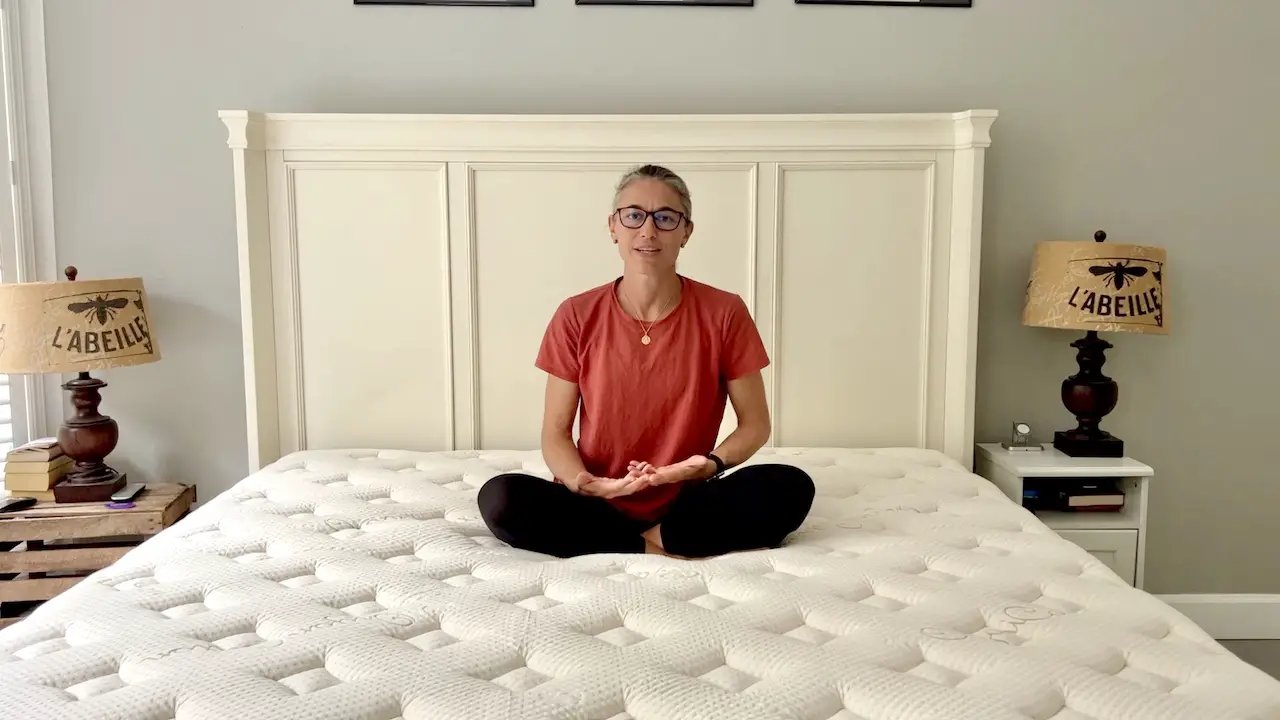BEST MUSIC FOR SLEEP
How Sounds Help You Drift Off to Restful Nights
Sleep is one of the most important factors for health, but millions of people struggle with falling asleep or staying asleep every night. While many solutions exist—like optimizing your mattress, adjusting bedroom temperature, or following a consistent bedtime routine—there’s one often overlooked method that can transform bedtime: music.
The best music for sleep has been shown to slow heart rate, reduce stress, and quiet the mind, making it easier to drift into restorative slumber. But what exactly makes certain music better for sleep than others? And how can you use it effectively in your own nighttime routine?
Let’s take a closer look at everything you need to know about choosing and listening to sleep-friendly music, including science-backed benefits, genres, playlists, and expert tips.
Table of Contents
Why Music Helps You Sleep
Music has a profound effect on the brain and body. When you listen to calming tunes before bed, it can:
-
Reduce stress hormones – Lowering cortisol levels and easing tension.
-
Slow breathing and heart rate – Matching your body to the rhythm of the music.
-
Trigger dopamine release – Promoting relaxation and pleasure.
-
Mask environmental noise – Blocking disruptive sounds like traffic, snoring, or neighbors.
-
Encourage routine – Listening to the same sleep playlist can condition your brain to associate music with bedtime.
Studies show that listening to calming music for 30–45 minutes before bed can improve both sleep quality and sleep efficiency, making it one of the simplest natural sleep aids available.
Characteristics of the Best Music for Sleep
Not every track is created equal when it comes to bedtime listening. The best music for sleep usually shares these characteristics:
-
Tempo: Around 60–80 beats per minute (similar to a resting heart rate).
-
Instrumentation: Soft piano, strings, acoustic guitar, or ambient sounds.
-
Lack of lyrics: Words can engage the brain too actively.
-
Minimal volume changes: Avoid music with sharp transitions or sudden crescendos.
-
Repetition and smooth transitions: Helps the mind “let go” rather than stay alert.
Best Genres of Music for Sleep
Different music genres can be effective, depending on personal preference. Below are some of the most common types used to aid sleep.
1. Classical Music
Calm, slow movements from composers like Debussy, Chopin, or Bach are often considered the best music for sleep. Classical pieces with gentle piano or strings encourage deep relaxation.
2. Ambient Music
Often instrumental and atmospheric, ambient music focuses on tones and textures rather than melodies. Brian Eno’s Ambient 1: Music for Airports is a classic example.
3. Acoustic and Instrumental
Acoustic guitar or soft instrumental pieces provide warmth and familiarity without overstimulation.
4. Nature Sounds with Music
Blends of rainfall, ocean waves, or birdsong with soft instrumentation create a peaceful sleep environment.
5. Meditation and Yoga Music
Designed for mindfulness, these tracks are slow, repetitive, and ideal for calming the mind before sleep.
The Science Behind Music and Sleep
Research has consistently shown that music can positively impact sleep:
-
A 2019 meta-analysis in Frontiers in Psychology found that listening to music before bed significantly improved sleep quality in adults with insomnia.
-
Studies suggest that music with a tempo of 60 BPM can synchronize with heart rate and breathing, leading to a more relaxed state.
-
Patients recovering from surgery or dealing with chronic pain report better sleep when incorporating calming music into their nightly routine.
This science backs up what many already know from experience: music is a powerful sleep aid.
Best Music for Sleep: Recommended Playlists
Today, platforms like Spotify, YouTube, and Apple Music offer curated sleep playlists. Below are some popular options that many sleepers swear by:
-
Spotify’s “Deep Sleep” Playlist – A mix of ambient, classical, and acoustic tracks.
-
YouTube Sleep Music Channels – Channels like Soothing Relaxation and Sleep Easy Relax offer hours-long playlists with gentle piano or ambient music.
-
Apple Music’s “Sleep Sounds” – A blend of nature and ambient tracks designed specifically for relaxation.
-
Calm App Sleep Music – Includes soundscapes and music designed by sleep scientists. Free app with premium option.
- Insight Timer App – Includes guided meditation tracks, sleeping sounds, and calming music designed to help you relax and fall asleep. Free app with premium option.
If you prefer a more personalized experience, you can also create your own sleep playlist with tracks that make you feel calm and safe.
Tips for Using Music for Better Sleep
To get the most out of the best music for sleep, keep these tips in mind:
-
Set a Timer – Use your phone or speaker’s sleep timer to avoid interruptions later in the night.
-
Choose the Right Device – A bedside speaker, sound machine, or pillow speaker works better than headphones for comfort. Our favorite is the Echo Dot – no screen, no blue light, easy to set a timer, create playlists, and discover like-genre tracks. The whisper mode is great if you need to start the device with a partner sleeping next to you.
-
Experiment with Genres – Some people respond best to classical, others to ambient or nature sounds.
-
Keep Volume Low – Music should be just loud enough to hear clearly without being distracting.
-
Make it Routine – Play the same playlist every night to signal your brain it’s time to rest.
How to Create the Perfect Sleep Music Routine
Pairing music with other healthy sleep habits amplifies its effects. Here’s an example routine:
-
9:30 PM: Dim lights and stop screen time.
-
9:45 PM: Play your chosen sleep playlist while doing light stretching or journaling.
-
10:00 PM: Get into bed, keep volume low, and focus on the sounds as you breathe deeply.
-
10:15 PM: Allow your mind to wander with the music, letting go of thoughts and distractions.
Consistency is key—using the best music for sleep as part of a nightly ritual can train your body to expect rest at the same time each night.
Use this 7-to-10PM bedtime routine schedule for adults if you are looking to get started with sleep routines, then adapt for your own needs and preferences.
Beyond Music: Pairing Sound with Sleep Products
For the best results, combine music with a comfortable sleep setup:
-
Mattress – Choose a mattress that supports your sleep style, whether it’s side, back, or stomach sleeping.
-
Bedding – Breathable sheets and cozy blankets help regulate temperature.
-
Sound Machine or Smart Speaker – Makes playing music effortless. Here’s our favorite.
-
Sleep Mask – Blocks light while music calms your mind.
Music works best when your overall sleep environment is optimized for rest.
Best Music For Sleep - Final Thoughts
The best music for sleep is more than background noise—it’s a scientifically supported, natural way to reduce stress, quiet the mind, and encourage deeper rest. Whether you prefer classical piano, ambient soundscapes, or nature-inspired tracks, music can become an essential part of your nightly ritual.
By selecting calming tracks, keeping the volume low, and pairing it with a healthy sleep environment, you can turn bedtime into a soothing experience that helps you drift off faster and wake up refreshed.
References
- Frontiers in Psychology. (2023). Effect of sleep ambient music on sleep quality and mental health in college students: a self-controlled study. Retrieved from https://www.frontiersin.org/journals/psychology/articles/10.3389/fpsyg.2023.1171939/full
- Cleveland Clinic. (2022). Dopamine. Retrieved from https://my.clevelandclinic.org/health/articles/22581-dopamine
- National Library of Medecine. (2008). Music improves sleep quality in students . Retrieved from https://pubmed.ncbi.nlm.nih.gov/18426457/
FAQ
Most frequent questions and answers
The best music for sleep is slow, calming, and instrumental, often around 60–80 beats per minute.
Yes, calming music can reduce stress and help you fall asleep faster while improving overall sleep quality.
Yes, as long as the music is gentle and the volume is low, it is safe and often beneficial.
Classical, ambient, acoustic, meditation music, and nature-inspired sounds are most effective.
Headphones aren’t ideal for overnight use. Pillow speakers or bedside devices are safer and more comfortable.
Share this deal with a friend!

Laura Georgieff
Laura is a mother of three who did not sleep through the night for the first 5.5 years of her kids' lives. She is passionate about sleep quality and loves sharing her experience and knowledge of all thing bedding! It is her mission to help you make the best decisions when it comes to sleep and help you get the best deal on the market!
What is the best music for sleep?
The best music for sleep is slow, calming, and instrumental, often around 60–80 beats per minute.
Does listening to music improve sleep quality?
Yes, calming music can reduce stress and help you fall asleep faster while improving overall sleep quality.
Is it safe to fall asleep with music on?
Yes, as long as the music is gentle and the volume is low, it is safe and often beneficial.
What genres work best for sleep?
Classical, ambient, acoustic, meditation music, and nature-inspired sounds are most effective.
Should I use headphones for sleep music?
Headphones aren’t ideal for overnight use. Pillow speakers or bedside devices are safer and more comfortable.






